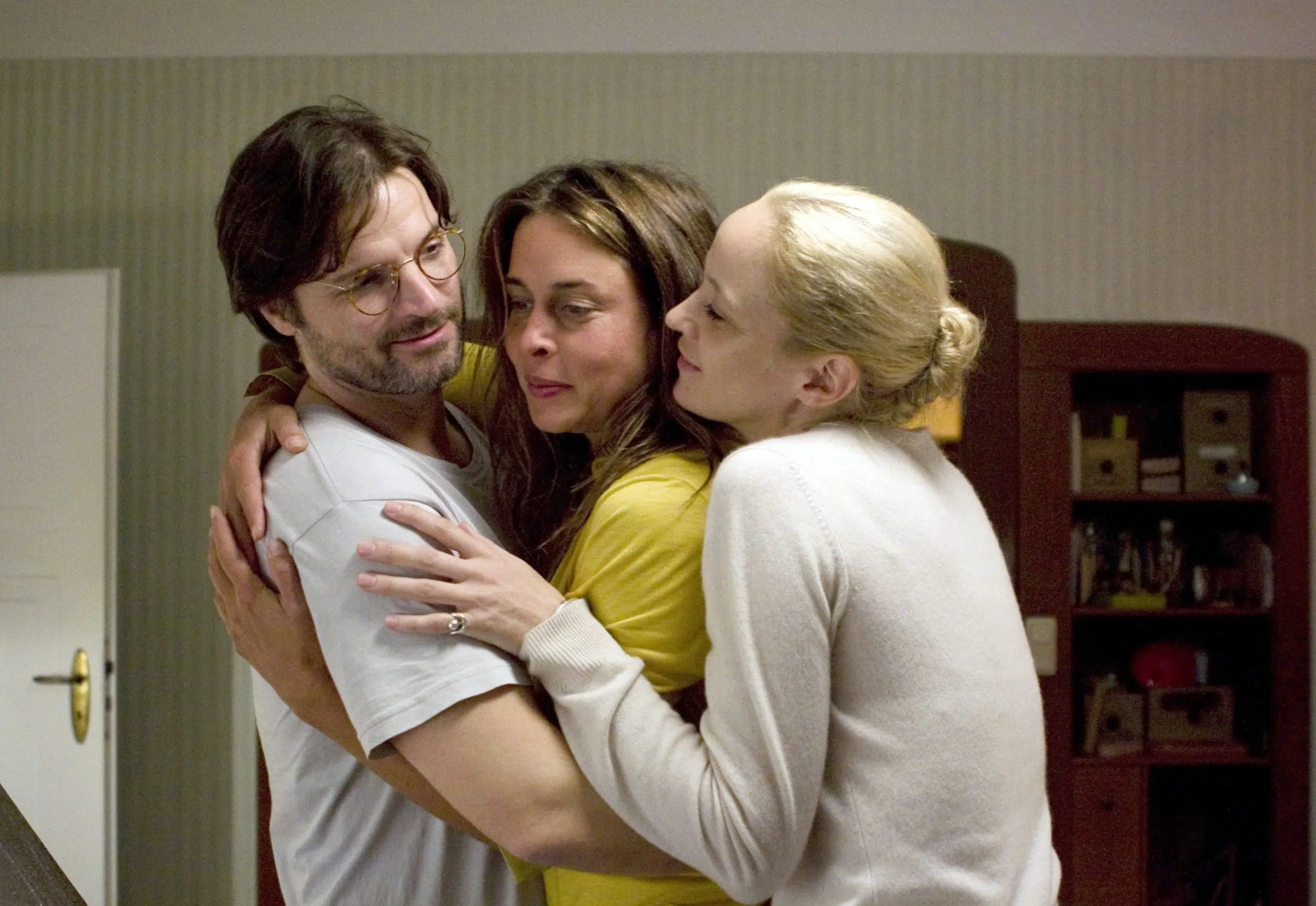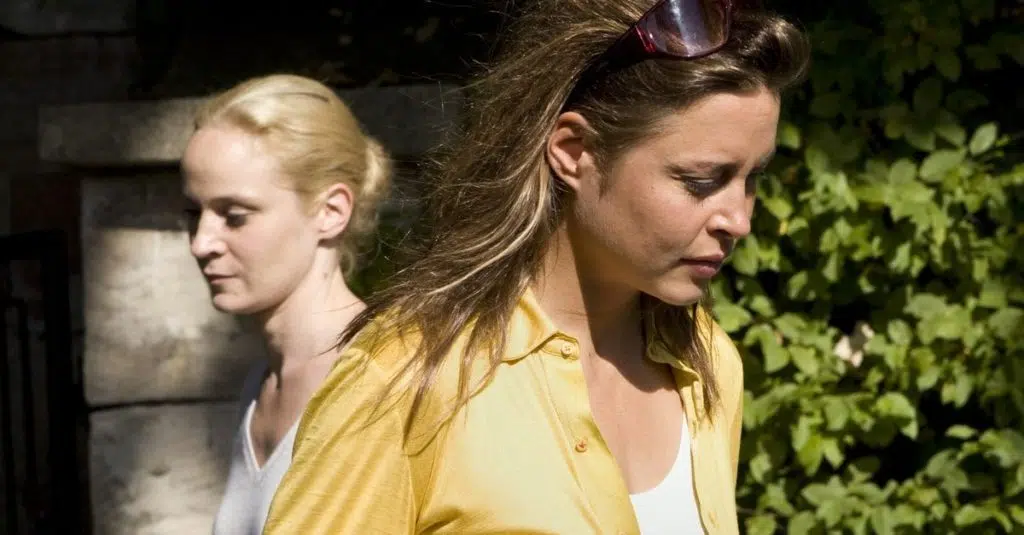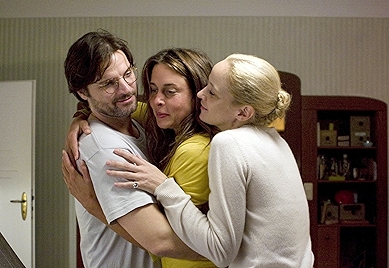Don’t Follow Me Around (Komm mir nicht nach) is the second of the Dreileben trilogy set in a quaint old German town in the heavily forested state of Thuringia. Goethe, Schiller and Johann Sebastian Bach are all associated with the area, though nowadays it’s got more of a name for what doesn’t happen there rather than what does – it’s slightly left behind.
That apartness, a sense of not much going on, pervades Dominik Graf’s story centred on Jo (Jeanette Hain), a criminal psychologist brought in to help the cops in Dreileben, who are struggling with the case of the escaped murderer Molesch (who links all three stories). Having found that her “booked” hotel room was nothing of the sort, Jo has ended up staying with Vera, an old friend.
Jo, pretty, capable and a single mother, hasn’t seen Vera (Susanne Wolff), also pretty, capable and hooked up with the very likeable Bruno (Misel Maticevic), for some years. Vera is a designer, Bruno a writer, and their house is an ancient fixer-upper whose semi-decorated state reveals the layers of Germany’s history. Here’s socialism, says Bruno, pointing to some particularly shoddy wallpaper. And here’s Hitler. Barbarossa has already been mentioned earlier, by Jo’s nationalist dad, with whom she’s left her boy.
Anyone hoping for any continuity with the previous film is in for a disappointment. Graf is even less interested in the hook – the murderer – than Christian Petzold was in Beats Being Dead. This angle gets barely a look-in. Nor does he seem too interested in Hitler, socialism, Barbarossa. Once mentioned, they recede to the background.
Instead Graf uses Jo as a metaphor for the German national character – she’s a capable, slightly unbending but pleasant woman who might, beneath it all, be not quite what she seems. By contrast, German regional character – quaint food, charming customs – fares slightly better, with the local cops getting an easier ride from Graf and co-writer Markus Busch than the Jo, Vera and Bruno, members of what would now be called the metropolitan elite.
This entire exploration takes place in a very detached way, inside the cinematic equivalent of gloves, mask and hazmat suit, and veers off in a direction that’s unexpected. As Jo and Vera reminisce, catching up on the intervening years over glasses of wine, it turns out that they both knew the same guy back in the day. In fact they might have been sleeping with him at the same time. Both seem mildly amused by this gobbet of shared history. It’s all a while ago now, they reason, one of those things that happen when you’re young and lusty. They shrug. Or that’s the impression each wants to give.
German national versus regional character gives way to a disquisition on lust, love and passion, a point made specifically in a “signifying” speech by Bruno at one point, a speech obviously designed to lay out the theoretical underpinnings of the drama we’re watching. If this episode of Dreileben were an exam subject, Bruno’s speech would have the yellow highlighter all over it.
Many questions are asked, about this mystery man in the past, and his relationship with Jo and Vera. But most of all, though neither says it out loud, each wants to know whether they were the bit on the side or the main event. Bruno, meanwhile, smiles gnomically and refills the glasses, perhaps wondering if a threeway is coming his way.
It’s a less obviously mythical film than Petzold’s, though there are moments that seem fairytale-like, and offer a direct callback to the first film. Without getting too spoilerish, nudity and night-time are involved.
And talking of callbacks, that scene in the first film where Johannes and Ana are on a hospital bed and a mystery blonde walks past the open door and peers in – that mystery blonde is now revealed as Jo.
What with all this going on there’s barely room, time or any real interest in the “escaped murderer, cop on the case” aspect of the film. Graf and co-writer Markus Busch (who collaborated with Petzold on the first instalment) quickly tie up this loose end with a plot strand about Jo, having somehow found time to psychologically evaluate the perp, getting a local woman to act as a decoy.
It’s a strange, three-headed beast of a film, held together by the performances of Hain, Wolff and Maticevic, who stoutly hold the fort until Graf and Busch with an almost magician-like flourish end the whole thing with a moment of extreme emotional resonance, which, of course, we should have seen coming.
Don’t Follow Me Around – Watch it/buy it as part of the Dreileben box set at Amazon
I am an Amazon
© Steve Morrissey 2022


